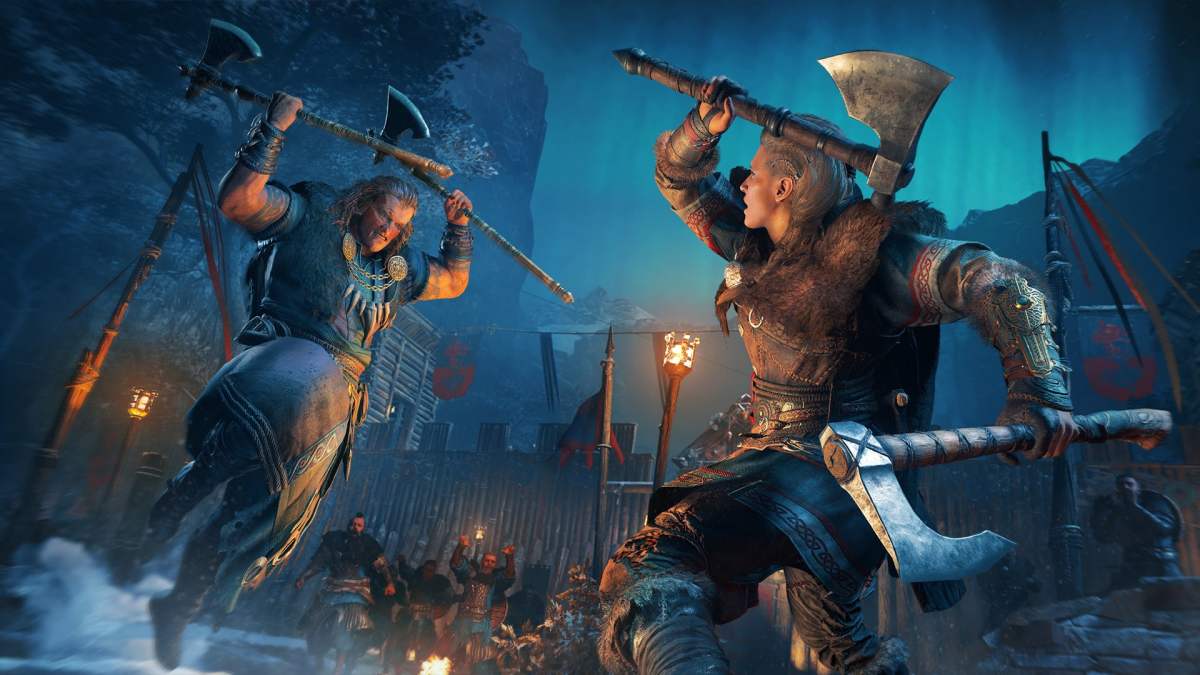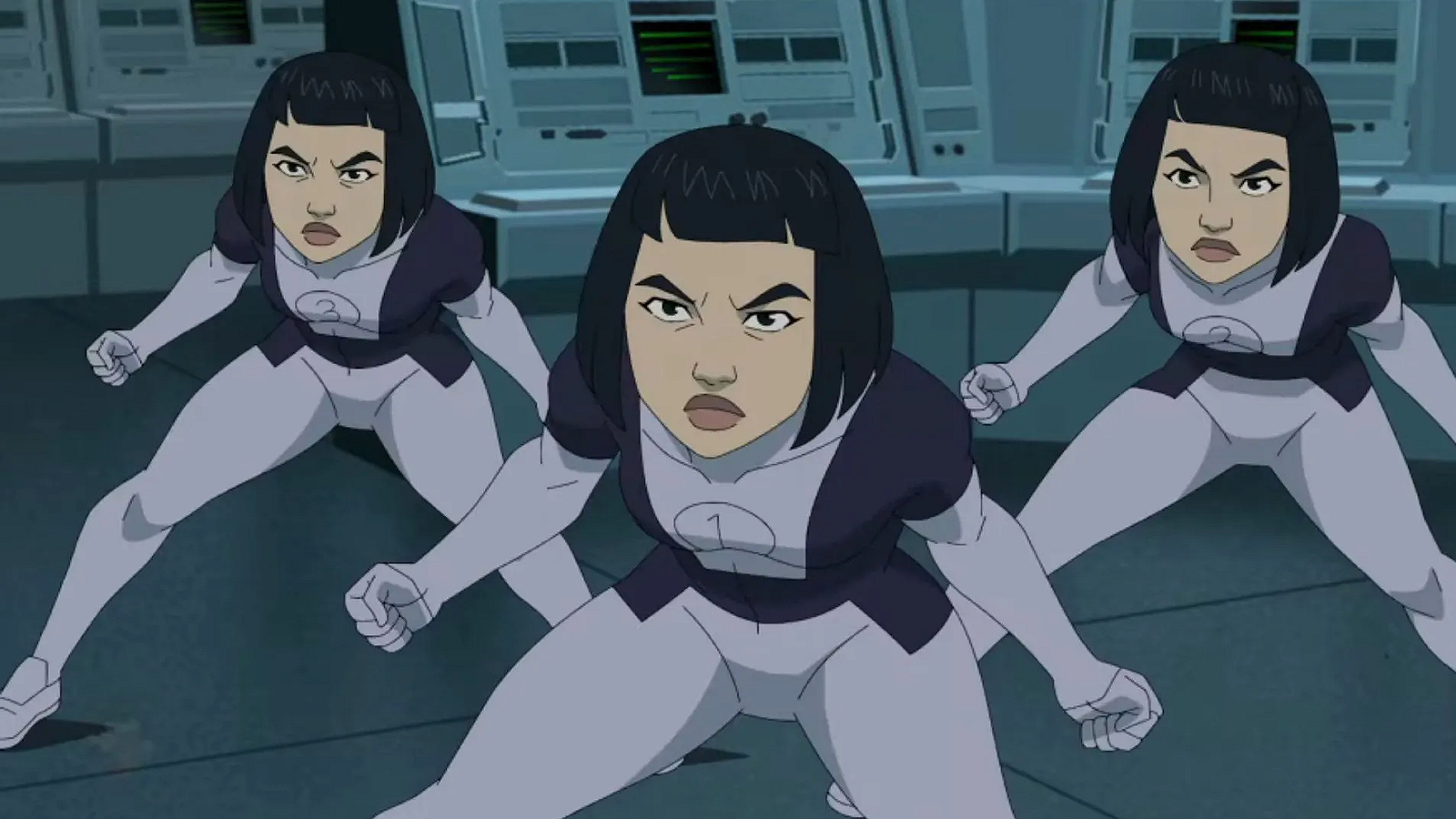I recently wrapped up over 80 hours of the best saga I’ve seen all year. Spanning years in the protagonist’s life, one story arc after another brought the Viking warrior to new lands in order to make allies, uncover secrets, and clash with enemies while her people carved out an uncertain future in a new, hostile land. Though some arcs were certainly better than others, the overall story felt like a compendium of the hero’s life, which just a decade ago might’ve been impossible to pull off in the medium. However, as you may have guessed, this gargantuan Viking epic did not come from a streaming service. It comes from video game developer Ubisoft with Assassin’s Creed Valhalla.
There was a time when, in order to see such a lengthy, fulfilling saga, you’d have to subscribe to HBO and tune into illustrious dramas such as The Sopranos, The Leftovers, or Six Feet Under. But as the TV industry has shifted toward the streaming model, 6-12 episodes will commonly drop simultaneously for instant viewing. At the same time, more and more video games have seemingly written feature-creep into their design documents. The last decade has consistently delivered two things: more digestible TV series and much larger, longer, even never-ending games, and it’s led to a seismic shift in not just how we consume each type of media, but how they influence the zeitgeist.
I’m the type of superfan that finds and fully commits to an accompanying podcast for every show I love. My favorite podcasting duo, collectively known as Bald Move, has built a successful DIY career out of speaking breathlessly about prestige dramas such as Westworld and True Detective. However, for the past few years, the trend of bingeable shows has made it hard, almost obsolete to even listen to an accompanying podcast for some series.

If I’ve watched four episodes of Stranger Things in one Saturday night, I’m less motivated to listen to a podcast covering only the premiere, where the hosts will surely discuss theories I’ve already seen play out. It’s like entertainment time travel, doling out dramatic irony between listener and podcaster where I know more than the experts because Netflix finds it more lucrative to dump an entire season on subscribers, but the hosts must take it an episode at a time. In turn, shows that cover such one-weekend binges lose their appeal, as the world quickly moves on from them.
A show like Stranger Things is a perfect example of this downturn in fan fervor. The debut season exploded onto the scene. As an homage to the youthful adventures of E.T. and The Goonies, Netflix struck gold with a large portion of its paying customers being exactly the right age to find it endearing, and those too young for the ‘80s nostalgia were nonetheless taken in by its sci-fi story starring a cast of charismatic kids. In an alternate universe where Stranger Things is released one episode at a time, it may well be one of the biggest properties in the world.
Two seasons later, the show remains popular and is widely regarded as consistently well-produced, written, and performed — but it leaves the public consciousness almost as soon as it arrives. With only eight or nine episodes every year or two, and with each arc coming to Netflix at once, many fans elect to make a single day out of a new season. Discussions of such shows on the internet and around the watercooler are correspondingly short-lived as a result.
Video games have taken an opposite approach over the past several years. Games like Assassin’s Creed Valhalla, Ghost of Tsushima, and Days Gone don’t just deliver dozens of hours of content you couldn’t possibly see in one weekend. Writers have, apparently on purpose, begun to deliver their winding stories in season-like arcs, where each chapter feels like a segment of a grander story, each of them with built-in valleys to offset their dramatic peaks.

Gaming communities such as MinnMax have made it their mission to break down video games in podcast form like an old-fashioned book club, requiring multiple episodes to cover a single game because games are just that big now. While TV series are boxed out by fandoms moving too swiftly to care very much for their here-today-gone-tomorrow debuts, enormous video games have filled the void for people to geek out over their favorite stories the way they used to with TV: slowly and with friends. In a pandemic, that’s even more important.
In Valhalla, the Raven Clan’s second-in-command Eivor moves about all of England as an unwelcome immigrant, forging alliances to ensure her people’s survival in a harsh new world that doesn’t take kindly to “heathens” like her. Over a war table, Eivor and her allies plot which land to venture to next, and with each commitment begins something like a new season for Eivor’s would-be TV series. She visits snowy villages, the fabled Canterbury, and even ninth-century London, all while she’s pulled deeper into local politics. She’s also pulled deeper into the overarching Assassin’s Creed mythos, which becomes the throughline of the drama, the Order of Ancients being the mysterious entity you never fully understand, like with Lost‘s DHARMA Initiative.
In Ghost of Tsushima, a presumed dead Jin Sakai rises from the ashes of where his village once proudly stood in the opening scene; it would make a perfect TV show pilot. What follows is 40+ hours of storytelling spread across three regions in Japan, each one with its own factions of heroes and villains, while the Big Bad of the Mongol Empire is always threatening the grand scheme of things. It took me many weeks to finish Ghost, and I liked it better that way. With acts built right into the story and recurring characters offering side quests that feel like episodes separate from the main story, the game has a remarkable way of keeping you invested despite seeming to invite pauses.

Days Gone perhaps exemplifies this better than any other game yet. The former motorcycle gangster Deacon St. John now roams the “Broken Road” of a post-pandemic Oregon, where fast-moving “freakers” tear apart the few survivors left in the world. It’s a familiar setup, and Days Gone wisely embraces its genre tropes. The anti-hero star of the show moves from one territory to the next, with each locale revealing a new way to survive in the brutal world. To go it alone would be certain death, but like in The Walking Dead, that doesn’t mean everyone left standing understands the concept of a “greater good.” Each story arc of Days Gone introduces new settlements, some of them heinous, others quite ideal given the times. It’s like seeing Rick Grimes spend his days at Herschel’s farm versus Negan running the Sanctuary, and as Deacon, these months-long arcs tell one grander story that pulls in players for the long ride.
This is a trend that was already occurring before the pandemic, but in years to come, we may see it even more often. The allure of a live-service game is often irresistible to the publishers who can foot the bill for projects as lengthy as multiplayer games like Fortnite or single-player epics like Red Dead Redemption 2. Despite a pandemic, these games continue to grow and evolve.
Meanwhile, television isn’t afforded most of the work-from-home capabilities that game developers have. TV schedules will continue to be disrupted in the pandemic, and projects will only get shorter and use fewer resources, including cast members, to work within these new limitations. The pandemic has in fact already changed how television, film studios, and streamers are approaching TV show and film production.
The Walking Dead returns with six bonus episodes in February, which may seem antithetical to the discussion, but not when you consider they’ve each been shot using few actors so as to limit the number of people on set. They are “isolated, character-driven stories” meant to give fans something to munch on until proper season 11 production may begin.

But even as it hasn’t been revealed yet, the next Assassin’s Creed is surely in development right now, and it will likely be bigger than the last, swallowing up more of our collective time and sitting under the spotlight for even longer. This past game launch was the largest in the series’s 13-year history.
Video game studios, while not without their own struggles in a pandemic, have largely settled into the new normal. Square Enix just announced the company will be offering permanent work-from-home employment for some employees. Others are expected to follow suit. This means games have the space to continue growing larger, telling epic sagas across all kinds of genres, while TV, like movies and live music, has few moves it can make in this current predicament.
Even after the pandemic, it’s likely TV series will keep getting shorter and arriving in bulk, sacrificing the weekly hotness for more instantly gratified viewers, thus justifying their subscription with a sea of one-weekend stories to digest. The games industry, already the most lucrative media industry, is not expected to pump its own brakes anytime soon, as budgets balloon and teams expand to numbers in the triple and quadruple digits.
We may get to a time where TV eventually becomes a sort of niche high art like a stage play. You plan your night to view a show, if you’re lucky you may be dazzled for a few hours, and then you go home. As the generations that grew up with games continue to pass them down to their kids, games are commandeering the conversation rapidly, and as serials shrink into the background, game developers have taken much of their language and applied it to their gargantuan projects.
Video games will continue to overlap other industries as they become more sophisticated and the old taboos surrounding the medium continue to evaporate. In turn, the production of massive video games that take weeks or months to end will continue unimpeded because the industry is proving to be pandemic-proof, and it’s virtually alone in that position. So the question just becomes by how much video games will dominate the field of serialized storytelling in the times to come.













Published: Dec 2, 2020 4:00 PM UTC